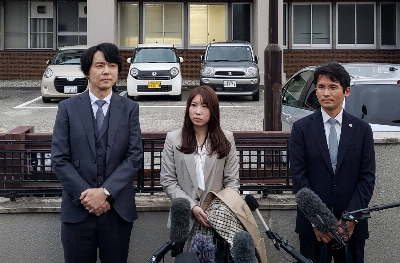In the fuss over the Oct. 11 WBC flyweight title match between 33-year-old world champion Daisuke Naito and 18-year-old contender Daiki Kameda, the media has been the object of criticism as much as Kameda, who has since been punished with a one-year suspension by the Japan Boxing Commission for rules violations. Tokyo Broadcasting Service, in particular, has taken a huge hit for enabling the bad behavior of both the teen boxer and his father-trainer Shiro.
As the Asahi Shimbun said in an editorial, the "simple, stoical" sport of boxing has increasingly been tainted by "elements of entertainment" that aren't much different from those that distinguish professional wrestling. This idea was exemplified for many by Kameda's late attempt to overcome Naito by lifting him up and slamming him down on the mat, but what Asahi was probably referring to was the Kameda family's particular emphasis on showmanship, an idea that has been central to boxing's appeal ever since a young African-American fighter named Cassius Clay learned how to rhyme.
What seemed to disappoint Kameda's fans on Oct. 11 wasn't so much that he lost — most experts expected he would — but that he didn't follow his pugilistic performance with a musical one. He always sings a song after a fight, but then, this is the first one he's ever lost.


















With your current subscription plan you can comment on stories. However, before writing your first comment, please create a display name in the Profile section of your subscriber account page.